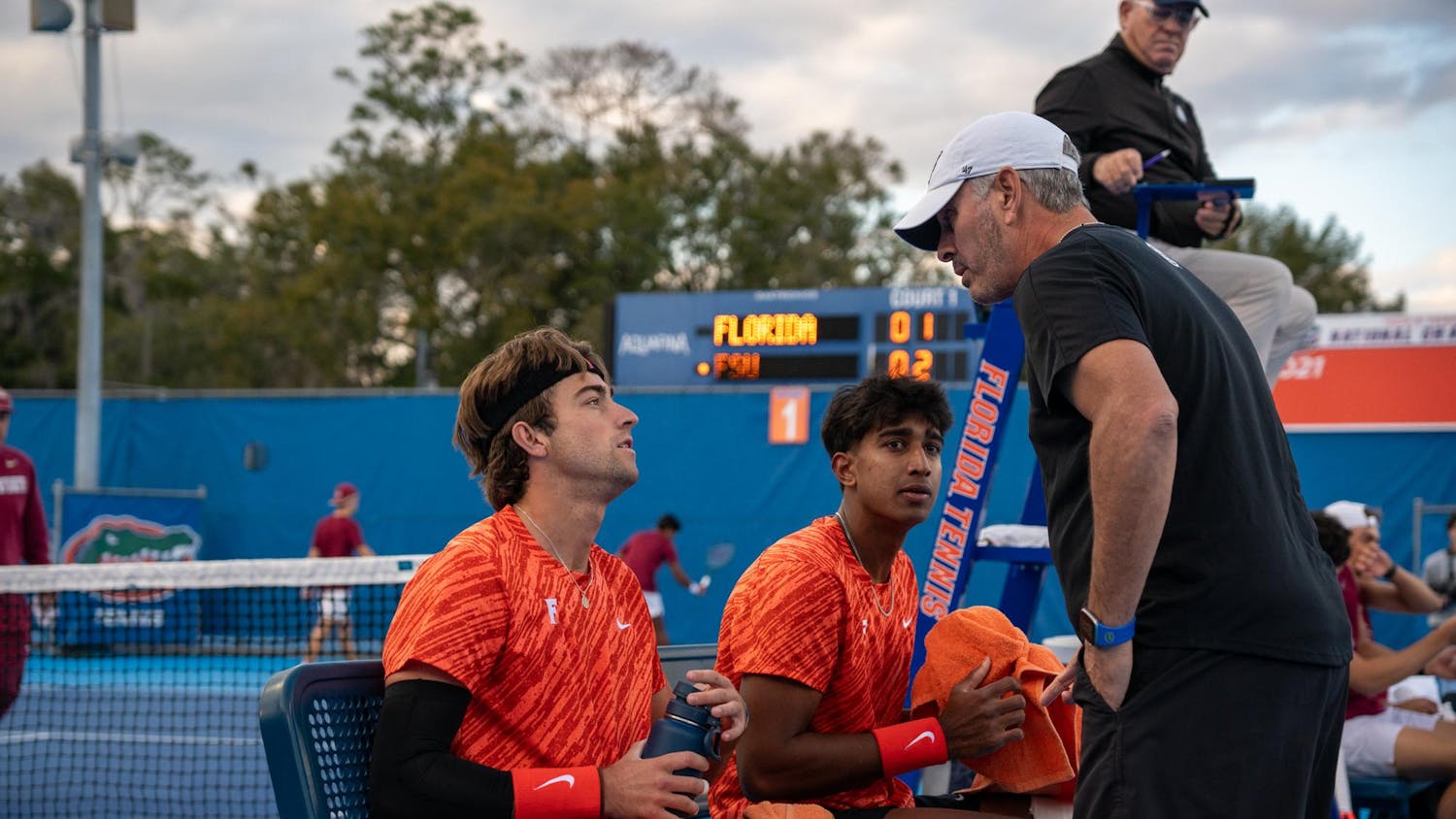I’m not an overly emotional person. This is obvious to those who know me well. But as I sit at my desk writing this column — my first for the Alligator — I can’t keep the tears from slowly streaming down my face and splashing onto my keyboard. Two weeks ago, my father passed away after a long fight with cancer. He was 53.
I lost the most influential person in my life. I lost my best friend.
My father should never have had cancer in the first place. Roughly four years ago, he noticed a spot on the bottom of his left foot. The doctor didn’t think it was a big deal.
But it was. The seemingly harmless lesion was actually melanoma, the most severe form of skin cancer. When I first heard, I wasn’t really concerned. Skin cancer isn’t normally a death sentence. Actually, it’s anything but. Melanoma patients have a five-year survival rate of more than 98 percent if it’s caught at an early stage.
But after that initial doctor’s visit, my father went untreated for a full year, living blindly while the cancer metastasized. By the time he was properly diagnosed, it had entered his bloodstream and spread all over his body, from his lymph nodes to his lungs and, eventually, to his brain.
On Aug. 1, my father was hospitalized. The cancer had progressed. I immediately drove home to Miami. Those five hours felt like five years. I didn’t know if he would still be alive when I got there. I didn’t know if I would get the chance to say goodbye.
When I walked into the hospital room that night, my father smiled when he saw me — the same warm smile that had consistently greeted me since I was a little kid. However, this time was different. The cancer’s effects on his body had become obvious.
Chemotherapy treatments caused his hair to fall out. His once strong, 6-foot-tall frame was now gaunt, ravaged after rapid weight loss. Eventually, he was released and sent home. But he never really improved. On the afternoon of Aug. 10, surrounded by my mom, my brother and me, he passed away. I held his hand as he took his final breath.
This whole process has produced one of the most difficult times of my life. I’ve been nagged by feelings of helplessness. Uncertainty. Loneliness. It’s a type of emotional pain I’d never experienced, welling up from places inside me I didn’t even know existed. I was relegated to a bystander, watching someone I deeply loved endure things no person should have to go through.
I wouldn’t wish it upon my worst enemy. The hardest part was having to lie and tell myself that everything was going to be OK, even though I knew it wasn’t. And despite mentally preparing myself for this worst-case scenario for some time, it made it no less easy to confront when it actually arrived.
Until the very end, my father was always positive and upbeat, fighting the disease with quiet resolve and resilience. He did not feel sorry for himself. I never once heard him complain. If he was scared, he never showed it. And through these times, I’ve also found myself feeling both fortunate and thankful.
Before he died, I got a chance to tell my father how much I loved him. I must have told him 200 times that final week. Those final moments and conversations we had will stay with me forever. We didn’t need to speak much. He was a man of few words, as am I.
Eventually, he deteriorated to the point where he could no longer speak. It didn’t matter. All I had to do was look into his eyes, and he into mine, to understand how much we meant to each other.
I miss my father immensely. I am forever grateful to have known him and to be there to say goodbye. If you have people in your life that you love, don’t wait. Let them know.
I got that chance. Not everyone is so lucky.
Brian Lee is a UF English senior. His column appears on Thursdays.





